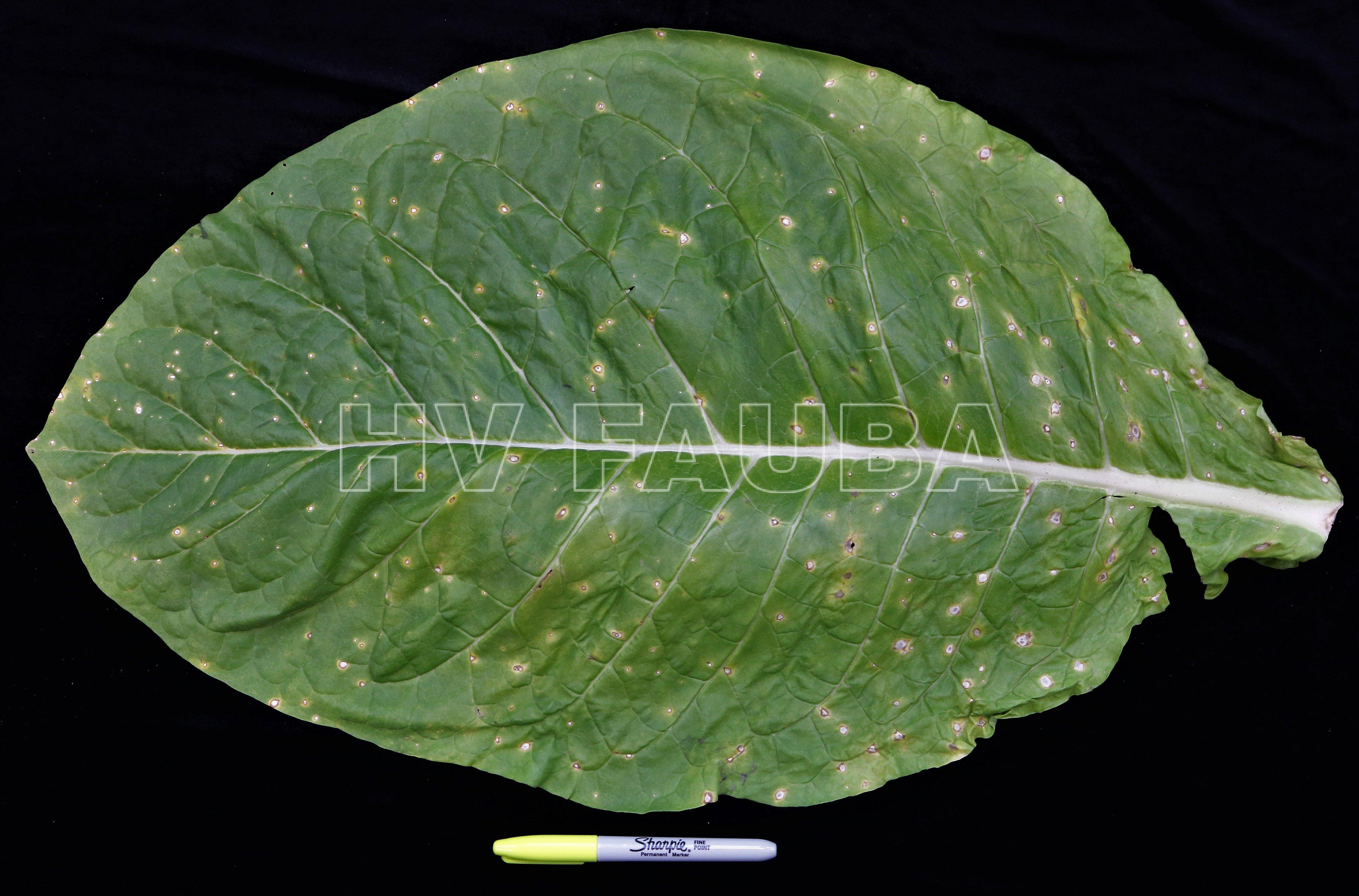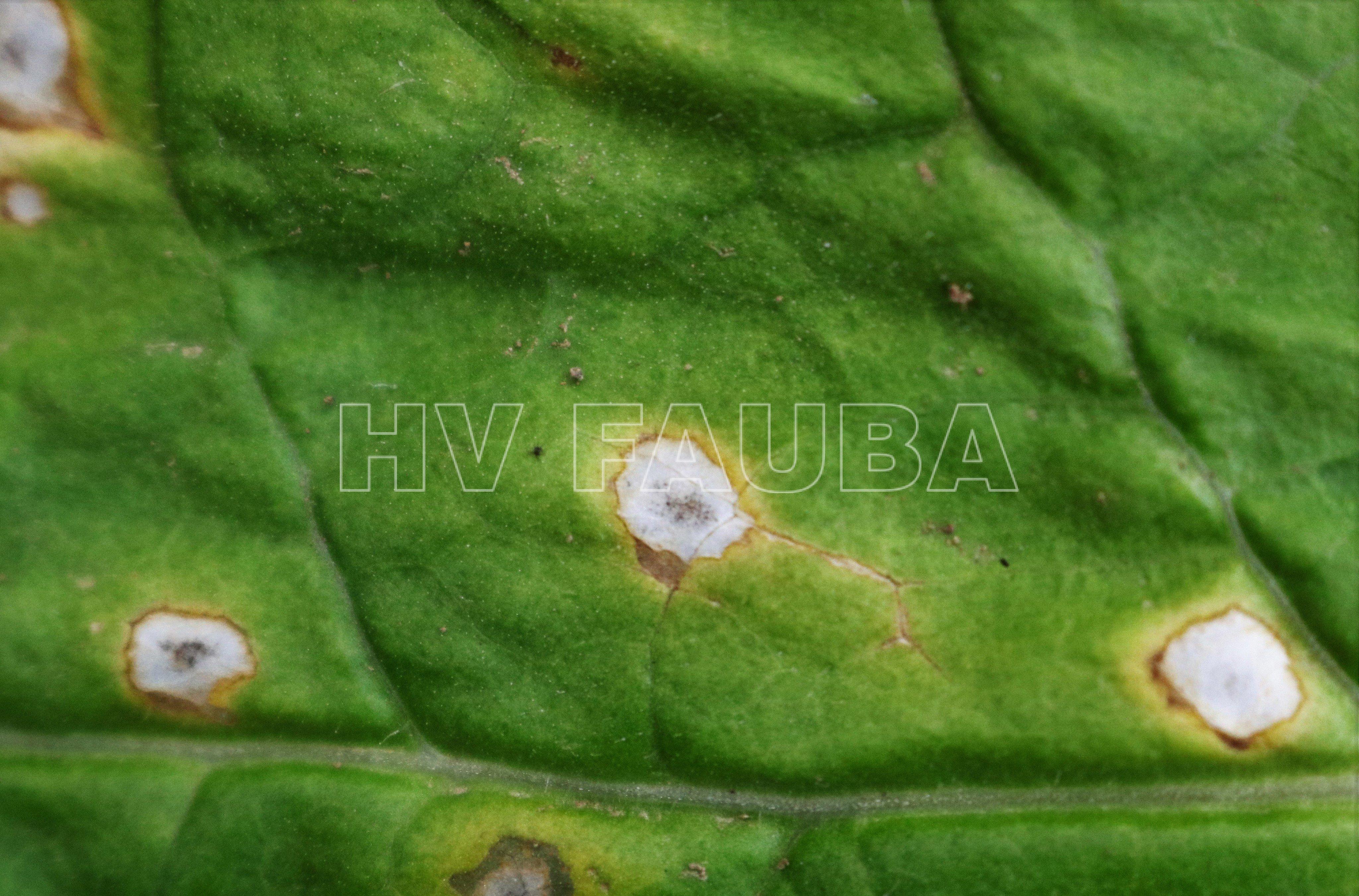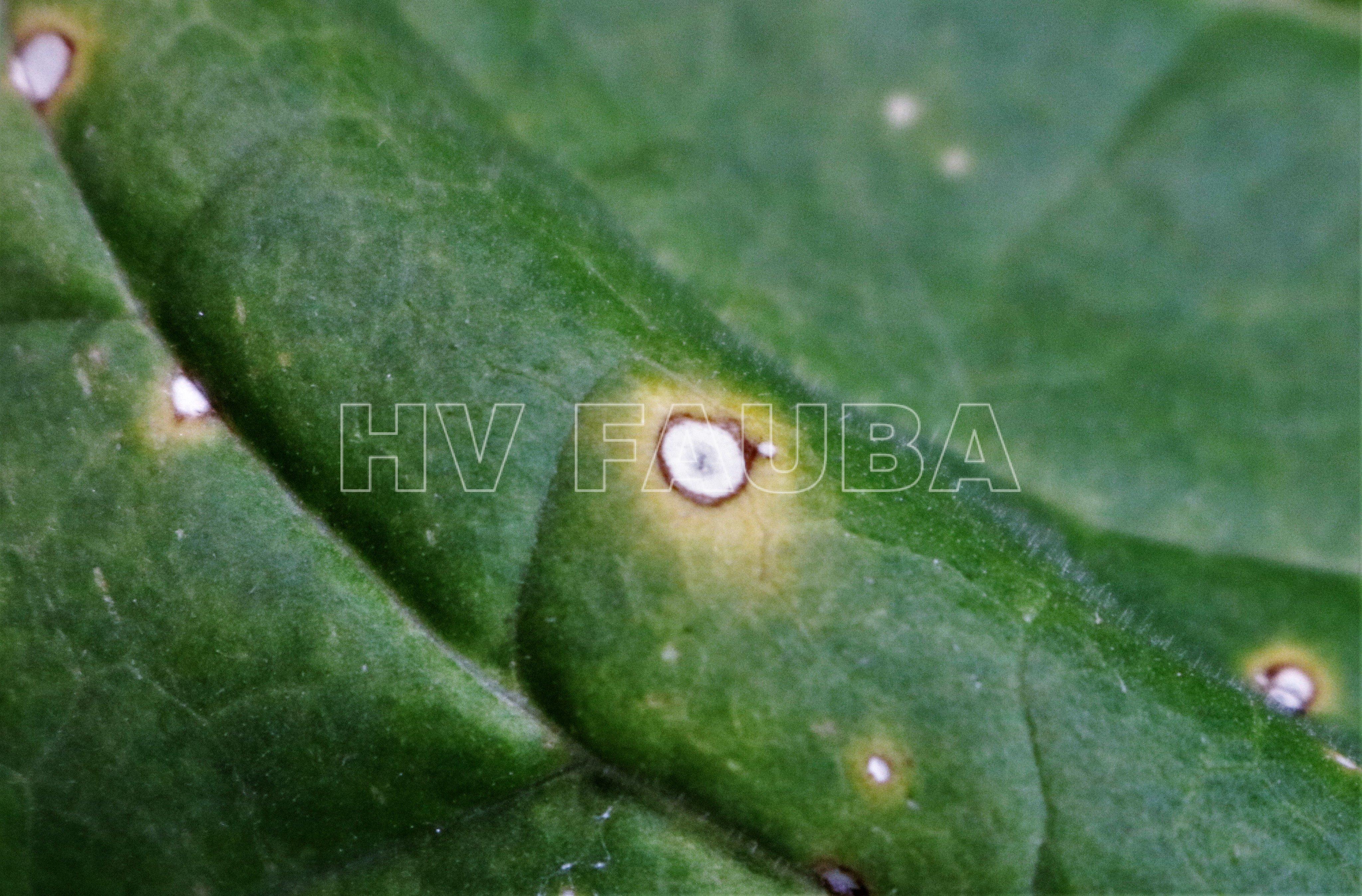.
Condición fitosanitaria: Presente solo en algunas áreas del país
Grupo de cultivos: Industriales
Especie hospedante: Tabaco (Nicotiana tabacum L.)
Rango de hospedantes:
Etiología: Hongo. Necrotrófico (Hemibiotrófico)
Agente causal: Cercospora nicotianae Ellis & Everhart, 1893
Taxonomía: Fungi > Dikarya > Ascomycota > Pezizomycotina > Dothideomycetes > Mycosphaerellales > Mycosphaerellaceae > Cercospora
.
.
Sintomatología
- Autor: Zachariah Hansen
- Autor: Zachariah Hansen
- Autor: Zachariah Hansen
.
.
.
Bibliografía
Cercosporiose do tabaco / Cercospora leaf spot on tobacco. Link
Amnuaykanjanasin A, Daub ME (2009) The ABC transporter ATR1 is necessary for efflux of the toxin cercosporin in the fungus Cercospora nicotianae. Fungal Genet Biol. 46(2): 146-58. doi: 10.1016/j.fgb.2008.11.007
Beseli A, Amnuaykanjanasin A, Herrero S, et al. (2015) Membrane transporters in self resistance of Cercospora nicotianae to the photoactivated toxin cercosporin. Curr Genet. 61(4): 601-20. doi: 10.1007/s00294-015-0486-x
Beseli A, Noar R, Daub ME (2015) Characterization of Cercospora nicotianae hypothetical proteins in cercosporin resistance. PLOS ONE 10(10):e0140676. doi: 10.1371/journal.pone.0140676
Chen H, Lee M-H, Daub ME, Chung K-R (2007) Molecular analysis of the cercosporin biosynthetic gene cluster in Cercospora nicotianae. Mol Microbiol. 64: 755–770. doi: 10.1111/j.1365-2958.2007.05689.x
Choquer M, Dekkers KL, Chen HQ, et al. (2005) The CTB1 gene encoding a fungal polyketide synthase is required for cercosporin biosynthesis and fungal virulence of Cercospora nicotianae. Mol Plant Microbe Interact. 18(5): 468-76. doi: 10.1094/MPMI-18-0468
Choquer M, Lee MH, Bau HJ, Chung KR (2007) Deletion of a MFS transporter-like gene in Cercospora nicotianae reduces cercosporin toxin accumulation and fungal virulence. FEBS Lett. 581(3): 489-494. doi: 10.1016/j.febslet.2007.01.011
Chung KR, Daub ME, Kuchler K, Schüller C (2003) The CRG1 gene required for resistance to the singlet oxygen-generating cercosporin toxin in Cercospora nicotianae encodes a putative fungal transcription factor. Biochem Biophys Res Commun 302(2): 302-10. doi: 10.1016/S0006-291X(03)00171-2
Ebert , , , et al. (2021) Identification and characterization of Cercospora beticola necrosis-inducing effector CbNip1. Mol Plant Pathol. 22: 301–316. doi: 10.1111/mpp.13026
Ehrenshaft M, Bilski P, Li MY, et al. (1999) A highly conserved sequence is a novel gene involved in de novo vitamin B6 biosynthesis. Proc Natl Acad Sci U S A. 96(16): 9374-8. doi: 10.1073/pnas.96.16.9374
Lartey RT, Weiland J, Panella L, et al. (2010) Cercospora Leaf Spot of Sugar Beet and Related Species. St. Paul, MN: APS Press.
Newman AG, Townsend CA (2016) Molecular Characterization of the Cercosporin Biosynthetic Pathway in the Fungal Plant Pathogen Cercospora nicotianae. J Am Chem Soc. 138(12): 4219-28. doi: 10.1021/jacs.6b00633
Shava JG (2022) Response of Intermediate Ripening Tobacco (Nicotiana tabacum) Cultivars to Frog Eye (Cercospora nicotianae) and Alternaria Leaf Spot (Alternaria alternata) in the Medium Growing Areas of Zimbabwe. Indian Journal of Agricultural Research (56): 220-224. doi: 10.18805/IJARe.A-529
Thomas E, Herrero S, Eng H, et al. (2020) Engineering Cercospora disease resistance via expression of Cercospora nicotianae cercosporin-resistance genes and silencing of cercosporin production in tobacco. PLoS ONE 15(3): e0230362. doi: 10.1371/journal.pone.0230362


